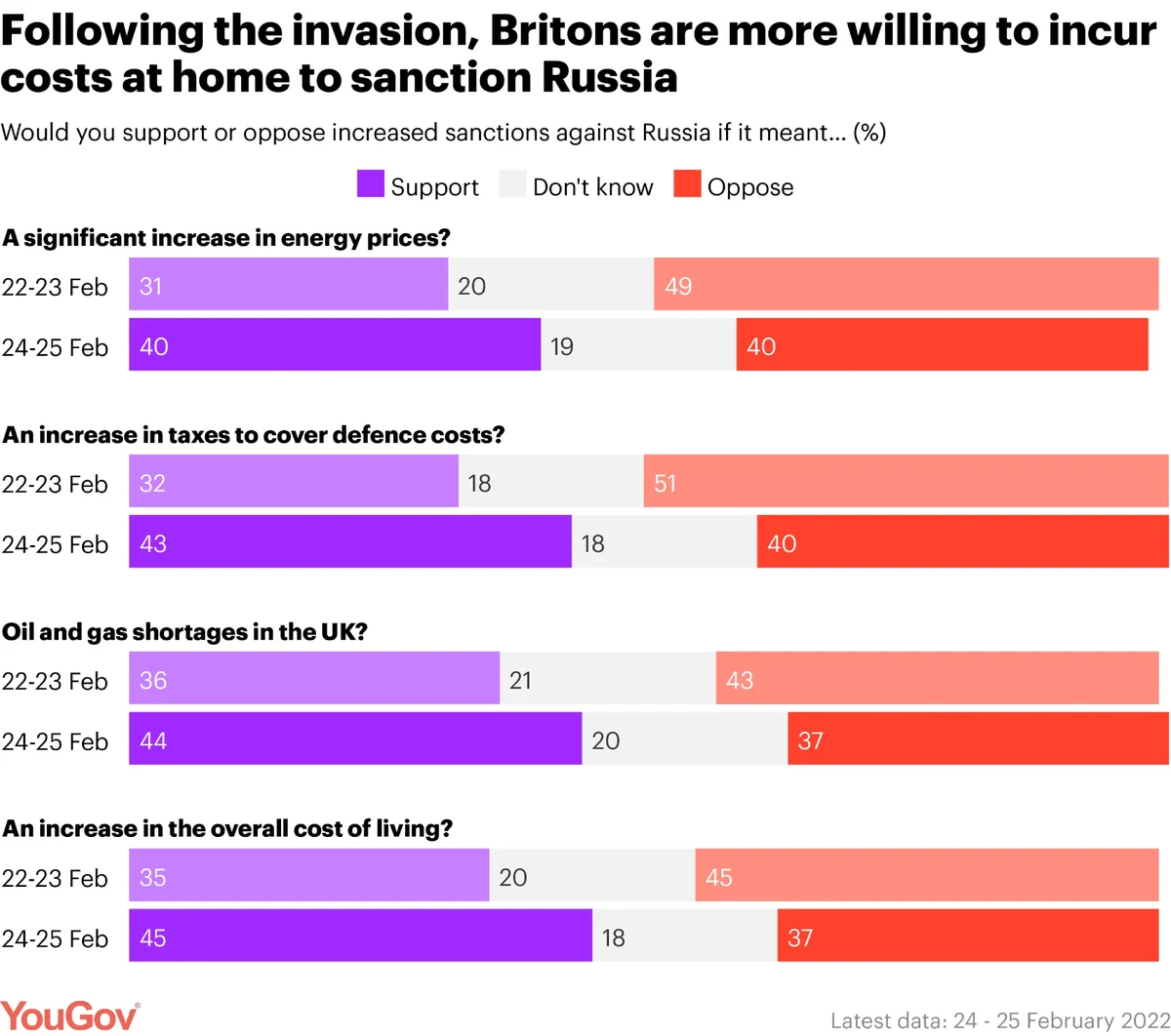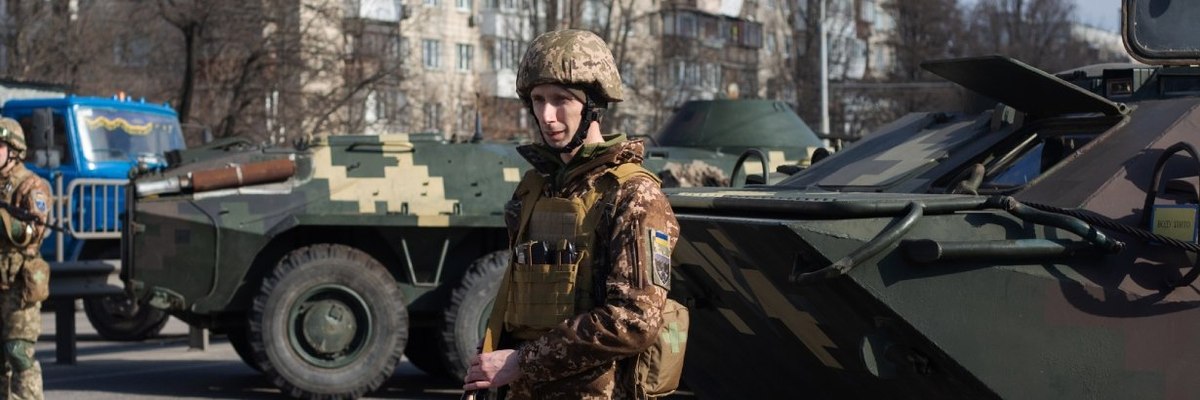Half would support the UK undertaking cyberattacks against Russian armed forces
Western nations levelled a second round of economic sanctions against Russia yesterday, following initial penalties earlier this week. However, the sanctions have yet to make a tangible impact - with a night of heavy fighting across the region.
Amid concerns the capital city Kyiv could fall in the coming days, President Zelenskyy says his country has been left to “stand alone” in its fight. For now, the deployment of British or NATO troops to Ukraine is off the table, as Defence Secretary Ben Wallace says doing so could lead to a continent-wide conflict.
Of the various measures the UK could take in response to the invasion, Britons are most supportive of further sanctions against Russia (77%) – including 58% “strongly” in favour. This overall figure is up from 69% in our previous survey shortly before the invasion began (22-23 February).
Another six in ten (62%) would support a media campaign encouraging resistance in Russian-speaking parts of Ukraine, urging them not to support Putin’s regime or the armed forces.
A similar number (60%) support sending additional arms to Ukraine, up from 46% earlier this week. Weapons supplied by the UK have already been successfully used against invading Russian troops, and Boris Johnson has promised more hardware will be sent.
While Britons are generally opposed to direct, ‘boots on the ground’ action, half (55%) would support the UK conducting cyberattacks against Russian military capabilities.
While Ben Wallace has ruled out British troops heading to Ukraine, the army will be reinforcing NATO allies in the region. Half of Britons (54%) now support sending soldiers to Eastern European allies, up from 45% who supported doing so before the invasion began. Support for sending troops directly to Ukraine has also increased slightly, up four points to 26%, although 53% remain opposed.
Implementing a ‘no-fly zone’ over Ukraine has also been ruled out as it could lead to British forces downing Russian planes – again risking a wider conflict. Nevertheless, three in ten (31%) Britons would back British airstrikes against Russian targets in Ukraine – up from 18% before the conflict started.
Britons are more willing to accept costs at home to penalise Russia
As negotiations continue over what further sanctions Russia will face, the major obstacle facing those pushing for the harshest measures is the cost incurred across the continent.
Indeed, our research before the invasion found that, while Britons were supportive of further sanctions, they tended to oppose them if they carried a cost at home.
Now, Britons are more willing to stomach costs to implement sanctions. By 45% to 37%, people tend to support sanctions that would lead to an increased cost of living – compared to 35% who supported it earlier in the week.
Similar numbers would back sanctions even if they lead to shortages of oil and gas (44% support versus 37% opposed). Previously 36% were in favour, versus 43% opposed.

Britons are now split 43% in favour versus 40% opposed over increased taxes to cover defence costs. This represents a significant change in favour, with 32% in support and 51% opposed in our previous survey.
There is another split over increased energy costs – 40% would support sanctions leading to significant rises while 40% would oppose them. Yet again, this represents a change from general opposition (31% support versus 49% opposed) in the days before the war began.
Britons oppose making concessions to Russia to try and end the conflict
Vladimir Putin has placed partial blame for the conflict on Ukraine's ambition to join NATO, saying that Ukraine must be barred from the organisation.
Britons generally oppose concessions to Russia in order to get them to halt the invasion, however. Only 14% would support a ban on Ukraine ever joining NATO, with half of Britons (54%) opposed to doing so.
Another 16% would support a permanent withdrawal of NATO forces stationed in Eastern Europe close to the Ukrainian and Russian borders. Again, however, half (51%) would oppose doing so.
A further 17% would support recognising Russian ownership of Crimea – which was annexed from Ukraine in 2014 – while 47% would oppose such recognition.
One in five (20%) back recognising the breakaway regions of Donetsk and Luhansk as independent states to try and end the conflict. Twice as many people (42%) would oppose this concession.
Finally, nearly a quarter would support western nations dropping their current sanctions against Russia to end the conflict – with 48% opposed.
Conservative voters are generally more opposed to possible concessions, with the largest differences between themselves and Labour voters being over the withdrawal of NATO troops from Eastern Europe (59% vs 49%) and recognising Russian control of the Crimea (54% to 44%).











